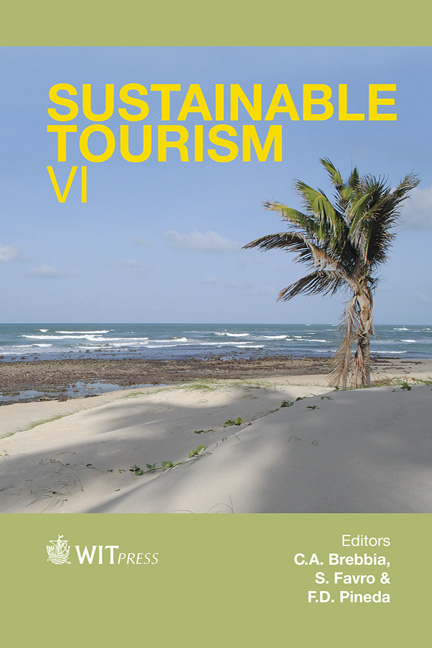Sustaining Tourism In South African Game Farms: The Benefits Of Ownership Of Restituted Land By African Communities
Price
Free (open access)
Transaction
Volume
187
Pages
12
Published
2014
Size
301 kb
Paper DOI
10.2495/ST140021
Copyright
WIT Press
Author(s)
M. P. Sebola
Abstract
The purpose of this paper is to argue that land restituted for ownership by black communities in South Africa is unable to attract tourists compared to previous private ownership. The South African government introduced land restitution through their land reform policy in order to redistribute land equally to South African communities. Equally, the process as viewed from the critics’ perspective; the land reform process portrays an image of a country that is taking over land from ownership of white minority class to ownership by Africans. Ownership of land in the country was racially skewed with 87% of productive land owned by the white people in the country with Africans congested to 13% of infertile and unproductive land. The Land Restitution Act of 1994 was passed to ensure that Africans are beneficiaries of new land allocation through the willing buyer willing seller principle. The ownership of land by Africans (Blacks) is viewed to a particular extent as being responsible for low economic output from game farms as compared to ownership by previous owners. This paper is conceptual and intends to investigate and establish the cause and reasons of low output of game farms through tourism. The purpose of this paper is to propose a useful model that South Africa could adopt for the benefit of new owners who are exclusively black. This paper therefore concludes that a new approach by the government aimed at promoting economic activities of game farmers (black game beneficiaries) is possible through continuous monitoring, mentoring, support and enforcement of good managerial practices of the Communal Property Associations.
Keywords
land reform, land restitution, game farm, tourism, communalproperty association.





